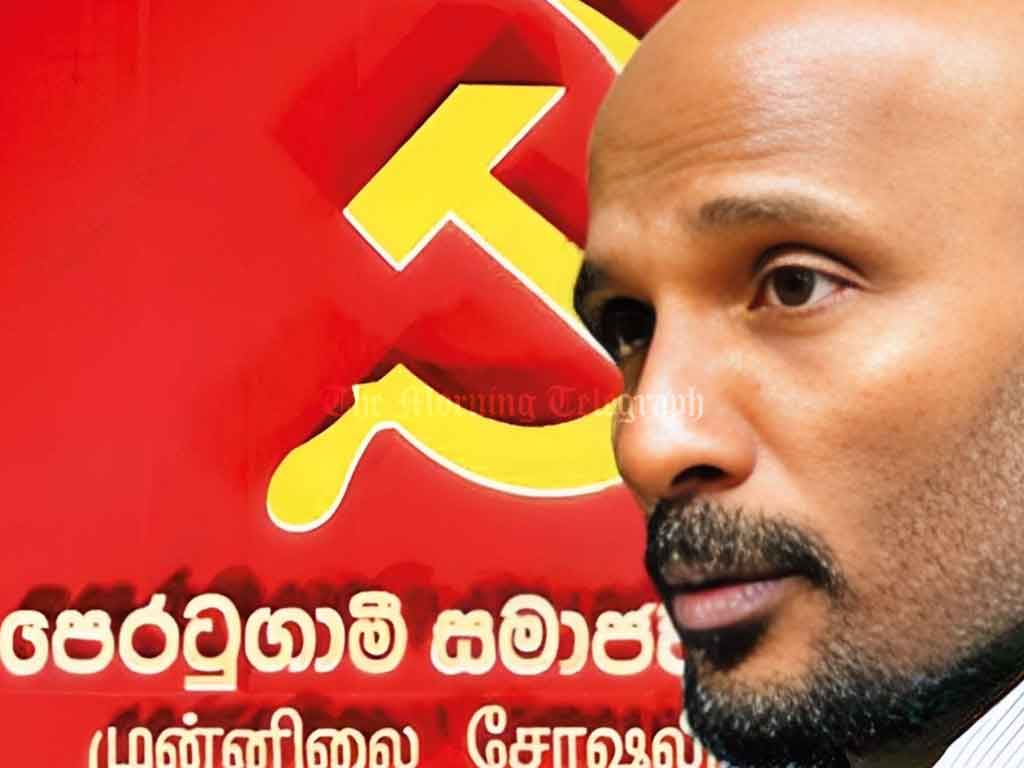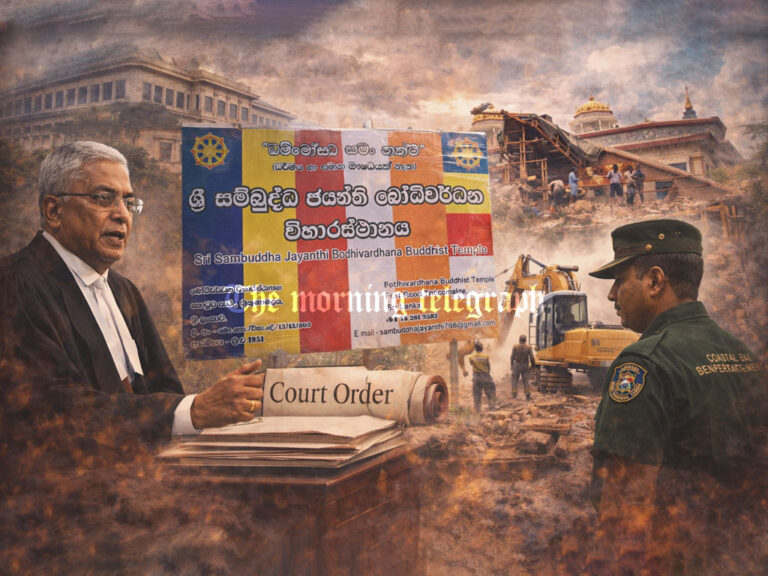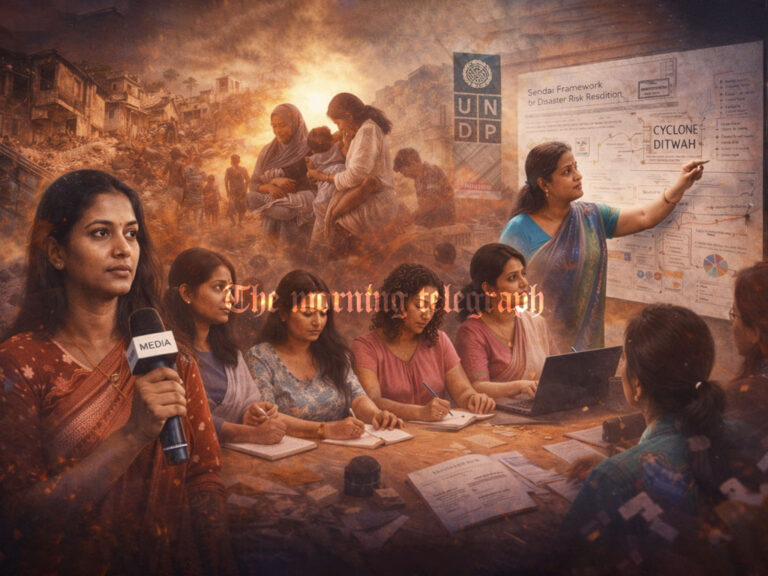
Kumar Gunaratnam, General Secretary of the Frontline Socialist Party, has voiced strong opposition to the National People’s Power (NPP) government’s decision to sign a security agreement with India, coinciding with the commemoration of the April 1971 Rebellion. He described the move as a historical irony and a betrayal of the very principles that brought the NPP to power.
Gunaratnam made these remarks at a special press conference held yesterday (April 4) at the party office in Nugegoda, where he highlighted the grave political implications of Indian Prime Minister Narendra Modi’s visit to Sri Lanka.
“We have heard the Cabinet Spokesman say that Modi is visiting the sacred Sri Maha Bodhi in Anuradhapura and making donations to Mannar Hospital. But let’s ask: what is India’s true intention behind these sugar-coated gifts?” Gunaratnam questioned. “India has had a longstanding agenda to gain control over strategic Sri Lankan assets, such as our ports, the Trincomalee oil tanks, the power grid, and other national infrastructure. Modi’s visit is about formalizing India’s hold over these sectors through legal agreements.”
He further emphasized that Indian media were the first to report that a security agreement would be signed during this visit, while the Sri Lankan government has yet to disclose any details about the contents of the pact. “We are in the middle of a global power struggle in the Indian Ocean region. China, the United States, and India are key players vying for strategic dominance. By entering into a security agreement with India, Sri Lanka risks being dragged into this geopolitical rivalry. This is why we call this agreement a historic mistake — a betrayal of our national sovereignty,” he said.
Gunaratnam recalled that Sri Lanka has never previously signed a defense pact with any country. While some agreements related to security cooperation exist, he argued that a formal defense agreement carries far greater political implications. “When Gotabaya Rajapaksa was Defense Secretary, he aligned with the U.S. and signed the controversial AXA agreement. Ranil Wickremesinghe then extended that agreement indefinitely. It’s not new for politicians like them to trade away the country’s sovereignty. But what’s most shocking is that the current government — a government led by the Janatha Vimukthi Peramuna (JVP) — is now taking the same path.”
He said that the JVP, since the time of J.R. Jayewardene and President Premadasa, has been known for fiercely opposing imperialist agreements and standing up for national independence. “Now that same party, which once fought in the streets against these very betrayals, is preparing to sign away the country’s sovereignty to India. This is not just a contradiction. It is a historical tragedy.”
Gunaratnam added that previous joint statements signed by Ranil Wickremesinghe and President Anura Dissanayake with India are now evolving into binding legal agreements. “This is a complete departure from the ideological foundations of the JVP. How can a political movement that prided itself on anti-imperialism now embrace neoliberalism and the IMF?”
He accused the government of pushing forward with policies that harm the people — including privatization of state institutions, erosion of free healthcare and education, job cuts, and rising costs — all while giving tax breaks to the wealthy and failing to take legal action against corruption.
“The path this government is taking is clear,” he declared. “But the people who voted for the NPP must now act to prevent this colossal mistake. Particularly, we appeal to the long-standing members of the JVP — how can you remain silent in the face of such betrayal?”
He stressed the significance of April 5, the date expected for the signing of the security pact. “April 5 is a sacred day in the history of the JVP — the day when the heroes of the April 1971 Rebellion rose up against an anti-people, imperialist regime. It is a cruel twist of fate that on this very same day, the current NPP government would sign an agreement that compromises our sovereignty.”
Gunaratnam concluded by urging the public to intervene: “We call on all citizens of Sri Lanka to stand up and oppose this anti-democratic act. Let us not allow this betrayal to define our history.”




